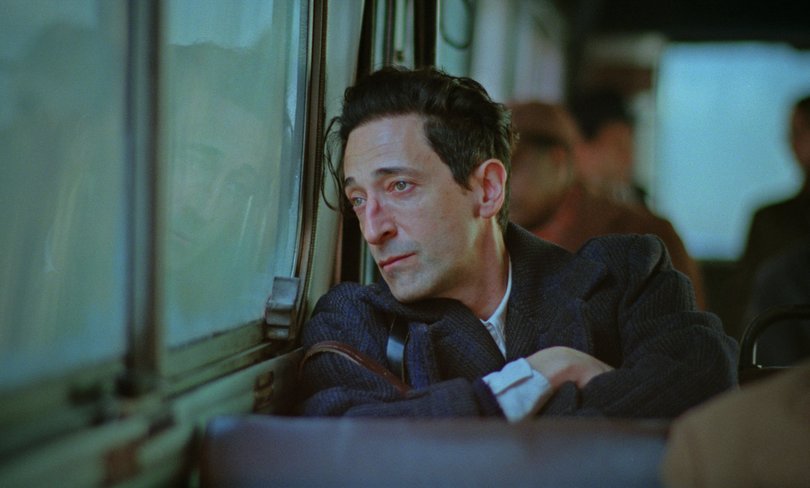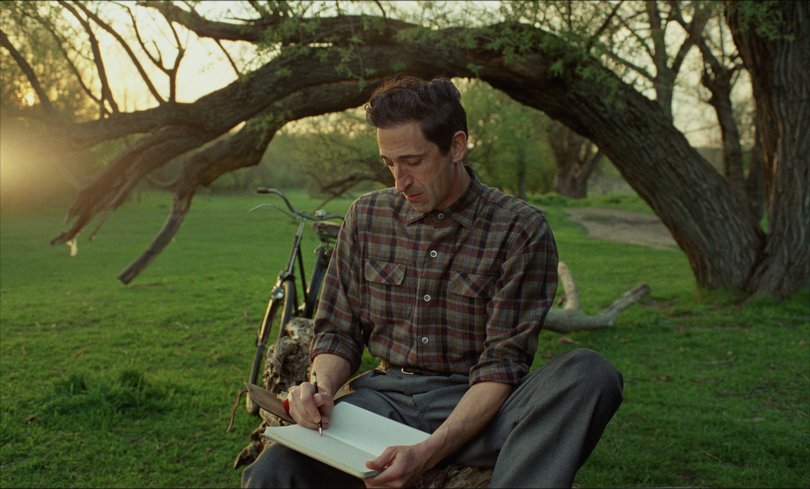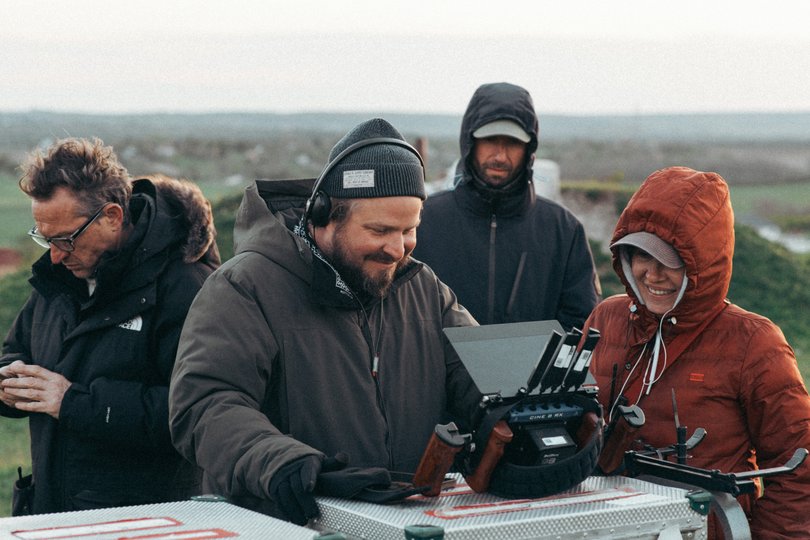The Brutalist’s Adrien Brody drew from his family’s heritage
A Hungarian immigrant and artist trying to make it in America in the mid-20th century? Adrien Brody knew all about that.

Not every immigrant family is open about their history, unable to relive the traumas of the past, the events that led them to flee their ancestral lands.
Adrien Brody’s family wasn’t like that. Growing up as the son of a Hungarian immigrant mum, and a New York-born dad with Polish heritage, Brody was very aware of their experiences.
His mother, the photographer Sylvia Plachy, moved to the US as a child, two years after the 1956 Hungarian revolution, crossing into Austria hidden in a cart. His grandfather had trouble assimilating into his new country, always marked as different because of his heavy accent.
Sign up to The Nightly's newsletters.
Get the first look at the digital newspaper, curated daily stories and breaking headlines delivered to your inbox.
By continuing you agree to our Terms and Privacy Policy.When it came to playing The Brutalist’s Laszlo Toth, a fictional Hungarian Holocaust survivor and architect trying to establish a new life in 1950s America, Brody’s inspirations were close to home.
“There are a lot of parallels with their journey, and my character’s and my mother’s own journey as an artist,” Brody told The Nightly. “I’ve lived with this understanding, my whole life, of that immigrant experience and the hardships and resilience that have been needed on their part, the sacrifice and the joys.

“It’s always been a part of their journey, and I feel very shaped by my mother and shaped by her journey as an artist. She has this innate sensitivity and empathy to others, and I think that’s translated to me in my way of viewing the world, and my yearnings in an artistic perspective as well as an actor and the kinds of roles I gravitate towards.”
Brody says his mother was very moved by the film, and what he drew from her father to bring to life a character from a specific background in that specific era. “I think it must have been pretty special to witness your son conjure up your father and ancestral struggles in a way,” he added.
Laszlo is not a role Brody could’ve played earlier in his life. While he’s always been drawn to intense characters, the timing had to be right, and living your life gives you the perspective to tackle someone like Laszlo – an addict, an artist, a lover and a man swirled by the momentous forces in his life.
Spanning several decades, The Brutalist, directed by Brady Corbet and co-written by him and Mona Fastvold, is an expansive and grand story about the promises and lies of the American dream, and an artist’s desires to fulfil his vision. Laszlo has been commissioned by a wealthy industrialist to create a legacy-worthy building.

For both men, it’s personal but only one has the artistic talent and only one has the money and power. It’s an age-old scuffle and it’s one Brody understands, working in a creative industry that has always had conflict between art and commerce.
“This film, in many ways, was created by Brady and Mona as almost an exorcism of their struggles and journeys as filmmakers and creators in an independent space, and much of the film speaks to the relationship between the benefactor, the patronage system, the artist and how work is created.
“Sometimes you have a very controlling system and sometimes you have quite wonderful patronage that enables art to flourish.”
It took Corbet and Fastvold seven years to mount The Brutalist. It fell over several times and the funding (less than $US10 million in production costs) was funded outside of the studio system. It’s an incredible achievement that took grit and faith.
Fastvold said The Brutalist was a “cathartic writing exercise” for her and Corbet, and drew a lot from their own experiences in the industry. They had to take on other jobs to pay the bills while the process played out.

The Brutalist is a leading contender in the Oscars race and has already won a stack of other accolades, but Corbet sees only one value in awards, and that’s the permission to keep working.
“They allow you to make the next movie, so we are grateful to have job security for the next nine to 18 months before everybody forgets,” Corbet said.
That’s the eternal struggle for anyone trying to make something, whether it’s a building, a film, a piece of music or a painting.
“If you want to make a living doing that work, there’s this relationship with commerce and the work has to sell for you to continue to that work” Brody added. “That’s what most artists are up against, and oftentimes that journey is a quite a struggle.”
The Brutalist is in cinemas.

